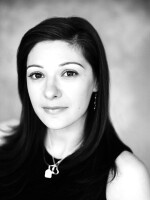There are thousands of active-duty Muslims in the U.S. military, and thousands more who work for the government. Their experiences and backgrounds are as diverse as any other group's.
But after the shootings at Fort Hood, many service men and women fear they're in for some unpleasant scrutiny.
'I'm An American First'
Specialist Naveed Ali Shah, based at Balad Air Base in Iraq, was online with his wife and their 18-month-old son when he heard about the Fort Hood shooting. His family was chatting with him from Texas.
"My immediate reaction is, 'Oh my God, where is this happening?' " said Shah. "Not knowing where the shooters were, I felt like they were in my own backyard. I told my wife to go lock herself in the bathroom."
Meanwhile, he scoured news Web sites for details. Eventually, the alleged shooter's religion was revealed. Debate filled the airwaves over the tension American Muslim soldiers face fighting in Muslim countries. But for Shah, there is no contradiction.
"When I joined the military I put on the uniform knowing I'm an American first and my religion has nothing to do with it," said Shah.
He doesn't see the U.S. military's war in Iraq as a war against Islam.
"I see it as I'm fighting for American freedom and American ideals to succeed," said Shah. "I just don't think that this is a religious war in any sort of way."
There's been little reaction from non-Muslim soldiers at his base, Shah said. He thinks most of them understand that whatever the shooter's background or beliefs, he doesn't represent all Muslim soldiers.
Shah is more concerned about how to raise his son without having him influenced by negative Muslim stereotypes.
You're looked at as a suspect in your own society, then you're looked at as a hypocrite in your community.
I think with this incident there are going to be a select few who will object to Muslims in the military and Muslims in America," said Shah. "And for my son's sake, that's the only reason I worry."
Nonmilitary Muslims Affected, Too
Irfan Nourredine is a contractor for the Defense Department in Washington, D.C. He was traveling at the time of the shootings, but his wife, a devout Shiite Muslim, had to go to the government department where she works after the Fort Hood tragedy.
Nourredine said his wife called him because she was unsure of what to do. "'Should I go to work? If I go to work should I take off my veil?'" she asked him. "For someone of her position," he said, "to wear a veil — it's not common."
The situation echoes the aftermath of Sept. 11. When Nourredine finally made it into his office this week, he went over talking points in his head.
"I was very apprehensive in the morning," Nourredine said. "Definitely nervous walking in, especially working on a base, you know, it's just one of those things you have to go through and persevere through."
But for Nourredine, what he needed to say was obvious, and he wasn't going to package it into tidy slogans. He believes the Fort Hood attack, which left 13 people dead, actually did have something to do with Islam.
"To say it has nothing to do with the faith of that individual would be dishonest," Nourredine said. "It may not represent the faith of Muslims around the world or American Muslims, but it does represent his faith and probably people of like mind — the fringe of the community, people who are on the outskirts, who we may not pay as much attention as we need to."
There are extremist Islamist elements in America, he says. And he wishes Muslims would accept that and begin dealing with it. For too long, some Muslims have stayed silent about radical beliefs they may not endorse because they don't want to appear un-Islamic, he says. For some Muslims in the government or in the military, that's a battle that can't be won.
"You're looked at as a suspect in your own society," he said. "Then you're looked at as a hypocrite in your community."
Thousands of Muslims have served in Iraq and Afghanistan. At least seven have been killed. But many also question their country's foreign policy. They seek guidance on what the Quran says about fighting in Muslim lands. And at the same time, they feel the constant need to prove their patriotism.
The shootings at Fort Hood now only heighten all those concerns.
Copyright 2022 NPR. To see more, visit https://www.npr.org. 9(MDAzMjM2NDYzMDEyMzc1Njk5NjAxNzY3OQ001))






